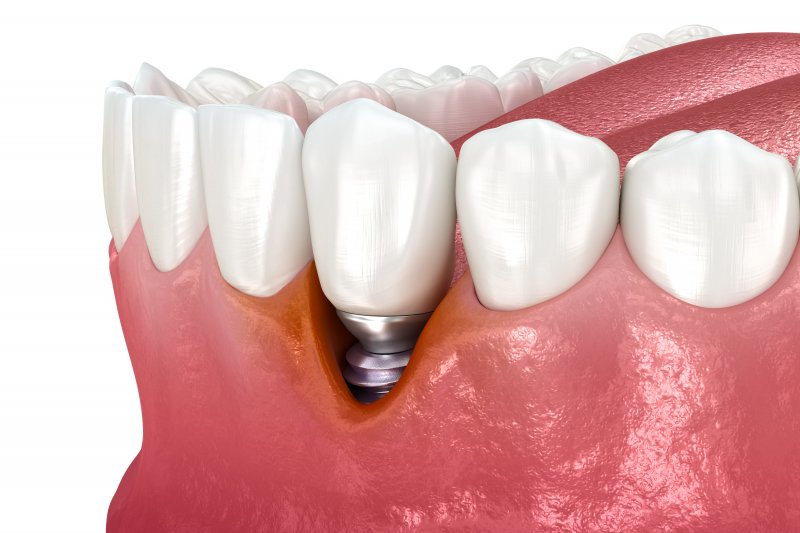
It is rare for patients to experience dental implant failure, especially since the success rate of initial placement is 95%. Poor oral hygiene, improper placement, failed osseointegration, facial trauma, and even a weakened immune system can all lead to issues forming that make these prosthetics unsuccessful. How can you know if a problem exists, and what can you do to prevent one in the first place? Keep reading to find out how to avoid serious oral health issues and enjoy a permanent smile for life.
What Causes Implant Failure?
Dental implant failure can occur for many different reasons. While some are avoidable, others are not:
- Peri-implantitis, which is a form of gum disease that occurs as a result of poor oral hygiene. Bacteria attack the soft oral tissues surrounding your implant, causing it to become swollen and red.
- Facial trauma caused by a sports injury or another similar activity.
- Failed osseointegration, which means the implant does not fuse with the jawbone.
- Improper placement by a dental professional who is not skilled in performing this type of procedure.
- Weakened immune system caused by a chronic health condition.
- Bad lifestyle habits, like smoking.
What Are the Common Symptoms?
You may not know immediately if your dental implant has failed, but it can happen immediately following initial placement or years later. Some of the most common signs you can expect to see include:
- Swelling
- Pain
- Infection
- The implant is loose
- Bone loss around the titanium post
- Gum recession
- Difficulty chewing
When Should You See a Dentist?
Do not wait to see a dentist if you notice any of the above-mentioned symptoms. An oral healthcare professional can provide the appropriate method of treatment to try and save your existing smile.
If they find that you have peri-implantitis, it’s possible to treat the diseased areas with gum disease treatment. You might also need a bone graft to address any bone loss that may be occurring.
If implant failure is caused by facial trauma, failed osseointegration, or improper placement, you’ll likely be required to have it removed so that your mouth can fully heal. When ready, your dentist can begin discussions about how best to replace your missing tooth or teeth and whether dental implants are the right solution for you.
Should your immune system be compromised, you may need to speak with your local physician to find out how best to manage your condition so that you can continue to live with dental implants successfully.
How Can You Prevent Implant Failure?
Preventing dental implant failure requires a level of commitment on your part, as these prosthetics will only last a lifetime if you agree to take proper care of your oral health. You can do this by:
- Maintaining the highest form of oral hygiene by brushing and flossing regularly as well as rinsing with an antimicrobial mouthwash.
- Continuing to see your dentist every six months for normal checkups and cleanings.
- Avoiding unhealthy lifestyle habits, like smoking and excessive alcohol consumption. Also, not chewing on inanimate objects, hard foods, or ice.
- Wearing a custom mouthguard while engaging in physical activities or sports, or if you grind your teeth at night (bruxism).
Dental implant failure is unlikely to happen as long as you take care of your new smile; however, should you notice anything out of the ordinary or experience any pain or discomfort, make sure to contact your dentist right away to get the immediate care you need.
About Grand Dental – Naperville
At Grand Dental – Naperville, dental implants are one of the most sought-after forms of treatment for individuals suffering from tooth loss. With a 95% success rate and the ability to remain in place for decades, they continue to serve as the gold standard when it comes to rebuilding incomplete smiles. However, problems can occur if you’re not careful, leading to dental implant failure. If you suspect you may be dealing with a serious issue related to your new prosthetics, visit our website or call us at (630) 576-9970.
